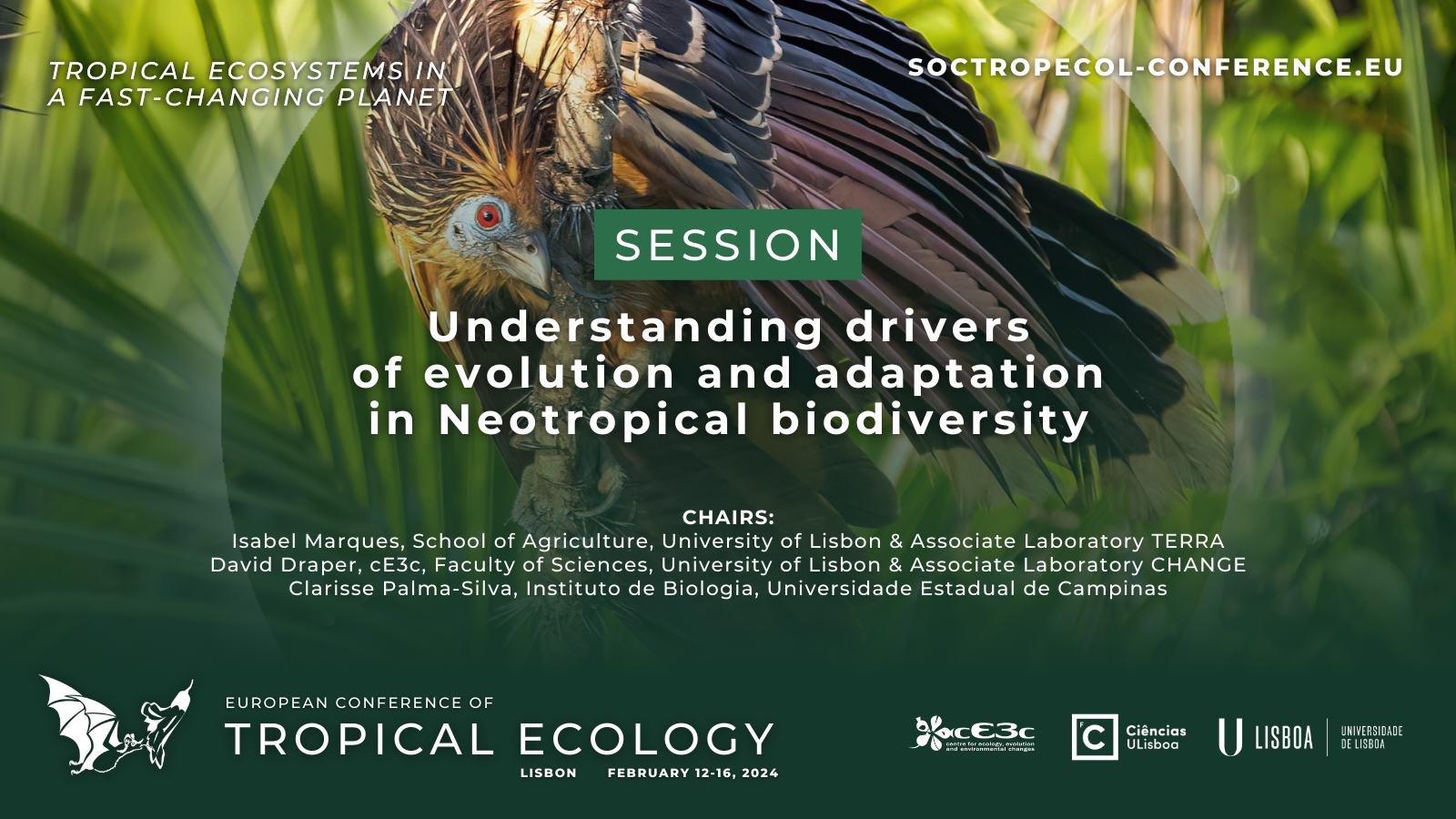[
Close window ]
Understanding drivers of evolution and adaptation in Neotropical biodiversity
Short title: Adaptations of neotropical biodiversity to changes
Chairs: Isabel Marques, David Draper, Clarisse Palma-Silva,
Contact: isabelmarques@isa.ulisboa.pt
The American tropics – Neotropics – comprise more species than any other region on Earth, due to a complex interaction of biotic and abiotic processes. This vast region extends from central Mexico to Argentina, including the Caribbean, and includes several different biomes and habitats such as high-elevation grasslands, seasonally dry forests, and rainforest systems. For centuries, scientists have sleeked to understand how ecological communities have been assembled over time and how abiotic and biotic factors have influenced species interactions, and the origin such astonish biodiversity. This quest is even more important nowadays as studies continue to show that Neotropical biodiversity is becoming increasingly threatened, with the potential to impact the goods and services provide to humankind. Global changes already affect individual species and the way they interact with each other and their habitats, reshaping ecological interactions and ecosystem processes. How will neotropical species respond to such changes is still a largely open question.
This session aims to provide an international multidisciplinary platform for discussing the many gaps in neotropical knowledge including (1) drivers of changes in breaking ecological interactions, (2) causes that enhance the risk of extinction and loss of ecosystem functions; (3) to debate and identify gaps and priority areas for research in Neotropics; and (4) fueling the development of new methods. Overall, we aim to facilitate opportunities between students and researchers for networking, collaboration and exchange of ideas using evidence-based studies.
Download the picture corresponding to your session for posting on social media.

